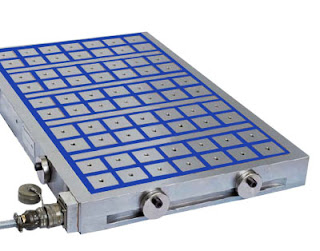Oil
filtration with Magnetic Filter Rod
is necessary for industrial and automotive machinery to function properly, be
dependable, and last for a long time. Disposable filters, cleanable filters,
strainers, and centrifugal separators are just a few of the many options
available to lubrication professionals for filtering and controlling
contamination. The importance of lubricant cleanliness cannot be overstated.
This
article looks at the many ways magnetic filters and separators are used in the
lubrication industry today and explain how particles are separated.
Additionally, a brief introduction to commercial filtration products is
provided.
The
magnet has been crucial in the process of separating ferrous solids from fluid
streams since its inception in the iron ore beneficiation industry. Magnetic
separation and filtration technology has found a useful application even in the
management of contamination from hydraulic fluids and lubricants used in
service.
There
are currently a number of conventional and innovative products on the market
that make use of magnets in a variety of geometries and configurations.
The
function of magnetic filters Auto mechanics, equipment operators, maintenance
technicians, and reliability engineers are aware of the significance of clean
oil for machine reliability. Tribologists and analysts of used oil are also
aware that ferromagnetic (iron or steel) particles can make up as much as 90%
of the oil in some machines.
Iron
or steel metallurgy is typically present on one or both lubricated sliding or
rolling surfaces. These remember frictional surfaces for outfitting,
rolling-component orientation, cylinder/chambers, and so on.
The
majority of conventional mechanical filters are disposable and cost per gram of
particles removed, despite the fact that they can remove particles of the same
size range as magnetic filters from Magnet Factory China.
Utilizing
conventional filtration comes with additional drawbacks, including an increase
in energy and power consumption as a result of the flow restriction imposed by
the medium's fine pore size. The restriction increases proportionally as
particles clog pores, increasing the power required to filter the oil.

